.jpg )
Porsche Cayenne E-Hybrid – Due July
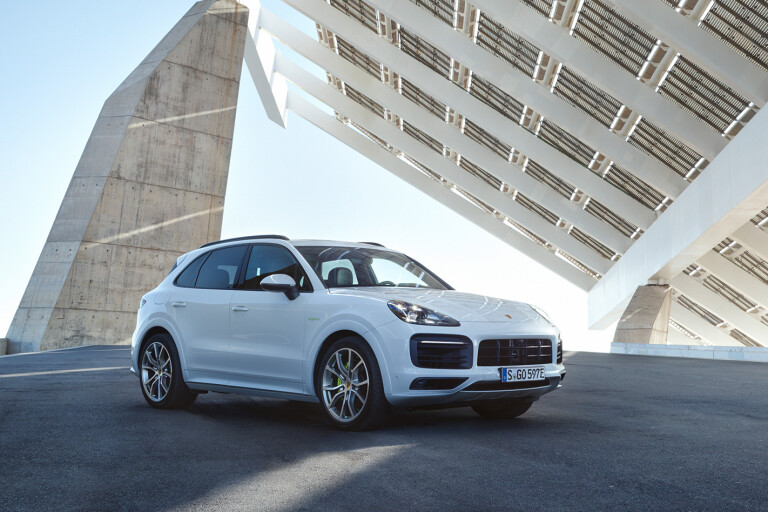
Porsche’s burgeoning performance-hybrid strategy will expand with the new-gen Cayenne luxury SUV in plug-in E-Hybrid form, with 30 percent more battery capacity and 43 percent more EV performance than its hybrid predecessor.
Able to drive 44km (and reach 135km/h) on electricity alone, the E-Hybrid combines a 250kW 3.0-litre turbo-petrol V6 with a 100kW electric motor for a 340kW total system power output. Porsche claims it’ll do 0-100km/h in 5.0sec and nudge 253km/h, while its average consumption on the Euro drive cycle is 3.2-3.4L/100km (depending on tyres).
Mazda CX-8 Diesel – Due July
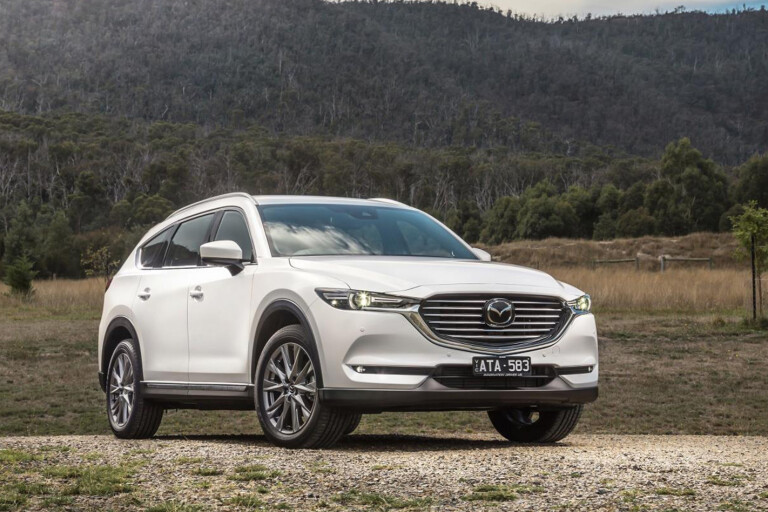
Mazda’s seven-seat CX-8 will slot just below the seven-seat CX-9 in size but slightly above it for price. Filling the hole that the petrol-only CX-9 can’t, the diesel-only CX-8 blends a slightly sportier exterior with Mazda’s new 2.2-litre twin-turbo diesel four, tied to a six-speed automatic ’box.
It will arrive with just two trim levels, Sport and Asaki AWD, with the Sport offering both front- and all-wheel-drive versions. Given the huge success of Mazda’s CX-5, the only thing likely to hold back the CX-8 here is supply.
Toyota Corolla hatch – Due August
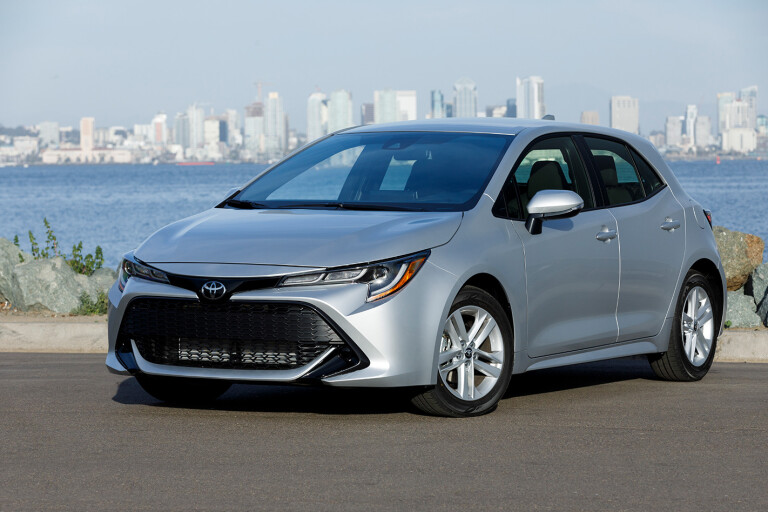
Australia’s biggest selling passenger car will gain even more market cachet with more sophisticated styling, a capable new chassis and a highly efficient new 2.0-litre engine. Built on the Toyota New Generation Architecture that’s shared with the Prius, Camry and the C-HR compact SUV, the Corolla sits 25mm lower than the car it replaces and is 30mm wider and 40mm longer, which will mean more leg and shoulder room.
The all-new Corolla will come with autonomous emergency braking as standard and illuminate the road with slimline LED headlamps, and LED tail-lights. An electronic parking brake replaces the traditional manual one, and all versions will gain two front USB ports.
Mercedes-Benz A-Class – Due August
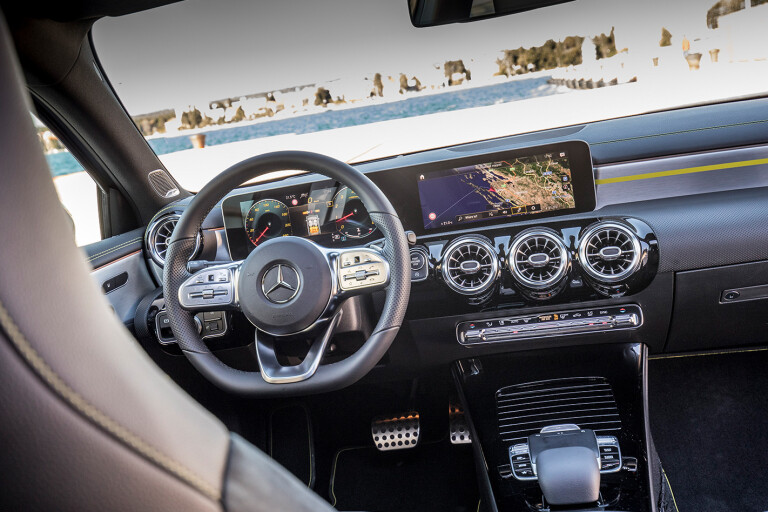
The fourth-generation A-Class brings technology to the luxury hatch segment in a big way, with S-Class level active safety and CLS-inspired interior dominated by dual 10.5-inch touchscreens stretching to the centre of the dash.
It will arrive Down Under with three different engines available at launch, including a carryover 165kW 2.0-litre turbo four-cylinder petrol, an all-new 120kW 1.4-litre four-cylinder turbo petrol developed with Renault, and an 86kW 1.5-litre four-cylinder turbo-diesel. Each will be coupled with a seven-speed dual-clutch automatic transmission and sold in varying states of tune depending on the badge.
Genesis G70 Coupe – Due September
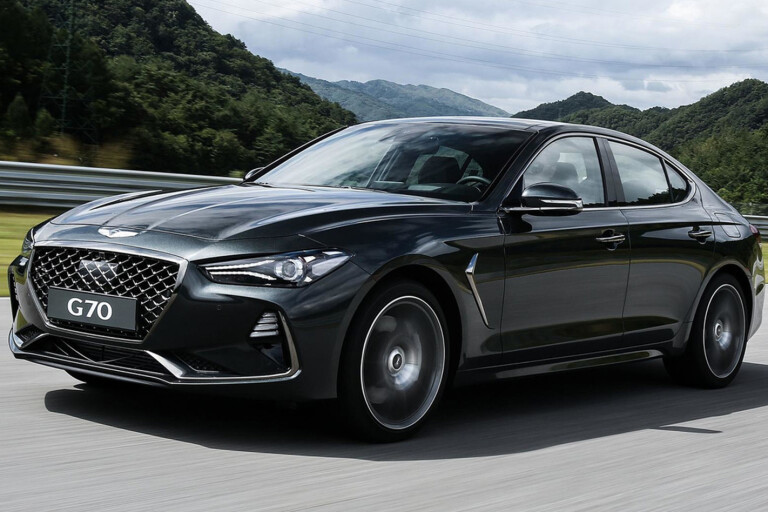
The G70 will be the first Genesis model offered in Australia as a standalone luxury brand, rather than as a Hyundai badged model. The G70 is smaller than the current Hyundai Genesis and will offer an alternative to smaller European luxury sedans such as the BMW 3 Series, Mercedes-Benz C-Class, and Audi A3 with semi-autonomous driver assist functions and advanced connectivity.
The G70’s performance credentials are highlighted by the range-topping 3.3T Sport that’s powered by the 3.3-litre twin-turbo V6 producing 272kW/510Nm and capable of reaching 100km/h from a standing start in 4.7 seconds and a top speed of 270km/h.
Cars due for release, July-September 2018
- Audi A7 Sportback
- Audi A8
- Aston Martin Vantage
- Aston Martin DB11 Volante
- Bentley Bentayga V8
- Bentley Continental GT
- BMW i8 Roadster
- BMW i8 update
- Chevrolet Camaro
- Genesis G70
- Genesis G80
- Hyundai Ioniq
- Jeep Grand Cherokee update
- Kia Sportage update
- Land Rover Range Rover P400e plug-in hybrid
- Mazda CX-8
- Mercedes-AMG C63 S update
- Mercedes-AMG GLC63 wagon and coupe
- Mercedes-Benz A-Class
- Skoda Karoq
- Toyota Corolla hatch
- Volkswagen Mk6 Polo GTI
- Volkswagen Tiguan Allspace
COMMENTS